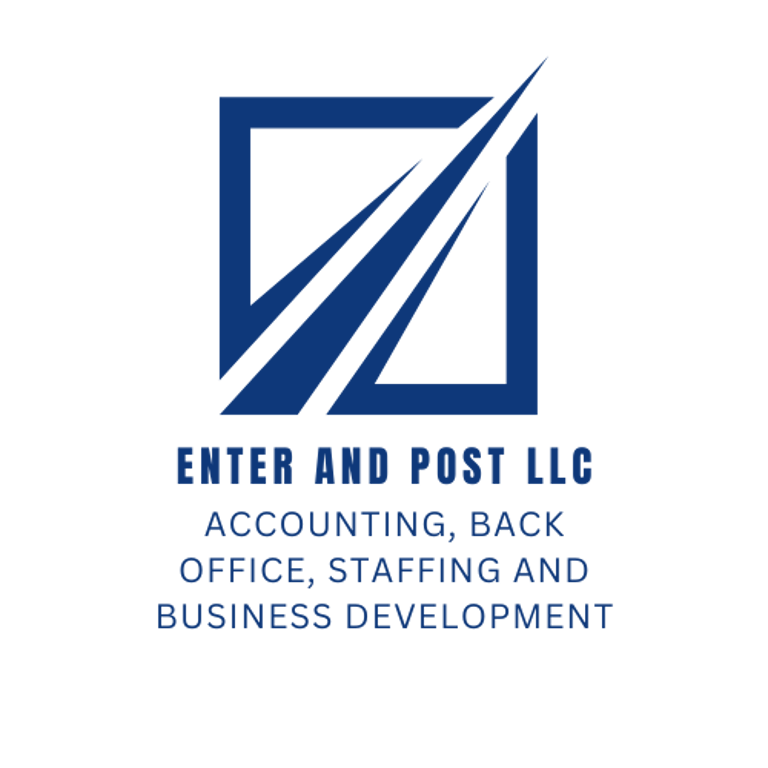Call Us Today! 503-895-5745
Unlocking the Secrets: Bookkeeping Tips for Small Business Success
7/24/20243 min read


In the fast-paced world of small business, staying on top of your finances is crucial for success. Bookkeeping, often viewed as a mundane task, is actually the backbone of effective financial management. At Enter and Post LLC, we understand that mastering bookkeeping and accounting can make the difference between financial clarity and confusion. Here are some essential bookkeeping tips to help unlock the secrets to your small business success.
1. Choose the Right Bookkeeping Method
The first step in successful bookkeeping is choosing the right method. You can opt for either cash basis or accrual basis accounting. The cash basis records transactions when money changes hands, which is simpler and often ideal for small businesses. The accrual basis, on the other hand, records transactions when they occur, regardless of when cash is exchanged, providing a more accurate financial picture for growing businesses. Consider utilizing double-entry bookkeeping to enhance accuracy and track both credits and debits in your ledger management.
2. Invest in Reliable Bookkeeping Software
Leveraging technology can streamline your bookkeeping process. Invest in reliable bookkeeping software that fits your business needs. Tools like QuickBooks, Xero, or FreshBooks can automate many tasks, from tracking expenses to generating financial statements, allowing you to focus on growing your business rather than managing spreadsheets. These tools often integrate with accounts payable and accounts receivable functions to simplify cash flow management.
3. Keep Personal and Business Finances Separate
To avoid confusion and potential tax issues, keep your personal and business finances separate. Open a dedicated business bank account and use it exclusively for all business transactions. This separation simplifies bookkeeping, reduces errors, and ensures you have a clear view of your business’s financial health. It also streamlines tax preparation and audit preparation processes by ensuring that all transactions are accurately documented.
4. Maintain Accurate and Timely Records
Consistency is key in bookkeeping. Maintain accurate records of all transactions and update your books regularly. Schedule weekly or monthly bookkeeping sessions to review and reconcile your records. Timely updates prevent backlog, reduce errors, and ensure that your financial data, including expense reporting and profit and loss statements, is always current.
5. Track Expenses Diligently
Every penny counts, so be meticulous about tracking your expenses. Categorize your expenses accurately to identify areas where you might be overspending. Keeping detailed records helps you make informed financial decisions and prepares you for tax season by ensuring you can claim all eligible deductions. Effective inventory tracking and budgeting techniques can further enhance your financial management.
6. Reconcile Bank Statements Regularly
Bank reconciliations are crucial for verifying that your records match your bank statements. Regularly reconciling your bank accounts helps catch discrepancies, prevent fraud, and maintain accurate financial statements. Aim to reconcile your accounts monthly to stay on top of any issues. This reconciliation process also ensures that your cash flow management remains in check.
7. Seek Professional Assistance
While DIY bookkeeping can be effective, enlisting the help of a professional can provide additional insights and ensure compliance with accounting standards. At Enter and Post LLC, our expert bookkeepers offer tailored solutions to meet your specific needs, from payroll services to audit preparation, providing peace of mind and allowing you to focus on what you do best—running your business.
8. Review Financial Reports Regularly
Regularly review your financial reports, such as profit and loss statements, balance sheets, and cash flow statements. These reports provide valuable insights into your business’s performance and financial health. Use this information to make strategic decisions and plan for future growth. Proper ledger management and understanding of financial statements are crucial in this process.
9. Stay Informed on Tax Regulations
Tax regulations can change, impacting your bookkeeping practices and tax obligations. Stay informed about relevant tax laws and updates to ensure compliance and optimize your tax strategy. Consulting with a tax advisor or accountant can provide additional guidance tailored to your business, helping you navigate tax preparation with confidence.
10. Develop a Bookkeeping Routine
Establishing a routine can make bookkeeping a manageable and efficient process. Create a checklist of bookkeeping tasks and set aside dedicated time each week or month to complete them. A consistent routine helps prevent errors and ensures that your financial data remains organized and up-to-date, supporting effective financial management.
Conclusion
Effective bookkeeping is more than just a task—it’s a critical component of your small business success. By implementing these tips and leveraging the expertise of Enter and Post LLC, you can unlock the full potential of your business’s financial management. With accurate records, timely updates, and professional support, you’ll be well-equipped to navigate the complexities of business finances, from cash flow management to payroll services, and drive your success forward.
Contact Us
Socials
📞 USA: (+1) 503-895-5745
📞 Pakistan: (+92) 332-3480678
🏢 Head Office:
8449 SW Barbur Boulevard, Portland, OR 97219, USA
🏢 Back Office:
T9, Sohni Shopping Mall, Karimabad, Karachi 75950, Pakistan.
© Copyright 2025 | Developed By | Enter and Post LLC
